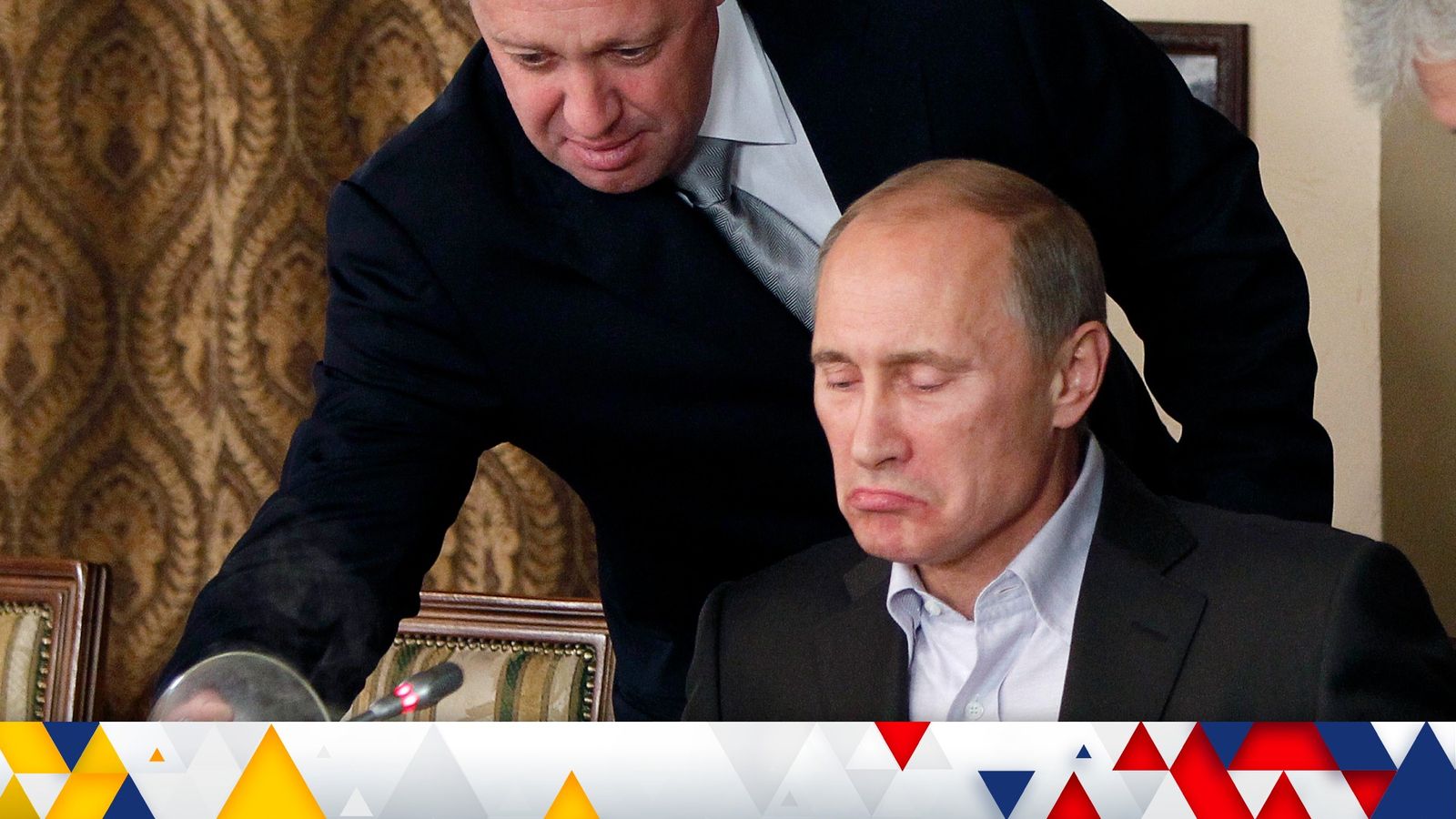Wagner Group rebellion in Russia: Aborted mutiny busts the myth that Putin is infallible

As mutinies go, the march by mercenaries on Moscow was anti-climatic, but history will likely remember 24 June as the moment Vladimir Putin’s grip on power started to slip.
The Russian president, looking rattled, was forced to give a televised statement to rage against what he called an act of treason and threaten dire punishment to the perpetrators.
But the Kremlin then cut some kind of deal with the head of the Wagner private army as his men were barely 100 miles from the gates of Moscow.
Live updates – Wagner leader to move to Belarus
It saw Yevgeny Prigozhin cleared of any criminal charges and given a one-way pass to next door Belarus, leaving Russia’s strongman still in post but visibly weakened.
Of course, he will seek to use this moment of maximum vulnerability to crack down ever harder on dissent and impose his authoritarian rule.
Yet the last 24 hours have busted the myth that the Russian leader – the dominant force in his country for the past 23 years – is infallible in the eyes of both his allies and his enemies.
That matters at a time when Putin is already having to defy gravity by defending his invasion of Ukraine as a just war in the national interest, even as he loses tens of thousands of soldiers, expends huge amounts of firepower and his country reels from global sanctions.
What a turnaround for a president who thought the Ukraine war would be won in a matter of days.
Advertisement
Please use Chrome browser for a more accessible video player
5:32
Putin accuses Prigozhin of treason
Instead, almost one and a half years later, it is his authority that is in doubt, while Ukrainian forces, backed by Western weapons, push on with a counteroffensive against his troops.
Putin has not only been proved wrong on Ukraine but also in his nurturing of Prigozhin and his mercenaries.
The Wagner Group, its ranks strengthened by thousands of convicts, was granted permission to surge into eastern Ukraine as Russia’s conventional forces faltered.
The president also gave Prigozhin the freedom to launch verbal tirades against the head of the Russian armed forces, General Valeriy Gerasimov, and Sergei Shoigu, the Russian defence minister – a particular target for the Wagner boss’s ire.
Read more:
How the revolt led by ‘Putin’s Chef’ unfolded
The former hot dog seller who became mercenary boss
Prigozhin was disaster waiting to happen for Putin
Please use Chrome browser for a more accessible video player
0:46
Wagner group cheered in captured city
His insults about their incompetence in leading the war effort would have seen any other Russians hauled off to jail for breaking the country’s strict rules about criticising the special military operation in Ukraine.
But Prigozhin was untouched and became increasingly emboldened.
The intent by Putin had seemingly been to pitch rival factions against each other, ensuring that neither his military chiefs nor his mercenary leader grew so powerful as to pose a threat to the president’s authority.
It is a tactic of divide and rule that has defined his time in power and – until now – proved effective.
Please use Chrome browser for a more accessible video player
0:57
Wagner leader’s audio message calling off advance
But then Prigozhin in a series of audio messages released on social media on Friday went beyond eviscerating Russia’s military to challenging the entire premise of the president’s war.
It was a direct blow to Putin’s authority that went much further than just words.
Suddenly Wagner fighters surged back across the border from Ukraine into Russia to seize the sprawling city of Rostov-on-Don, a key hub for the war effort, and move towards Moscow.
That the mutiny ultimately fizzled out almost does not matter.
The key is that it happened at all in a country where disorder is forbidden.
It is far too soon to be writing Putin’s political obituary.
He still has the all-powerful security forces on his side, while state television channels and newspapers remain obedient and fawning.
But there is no doubt that the events of this weekend have exposed cracks at the heart of the Kremlin in the ultimate, self-inflicted blowback from the war in Ukraine.